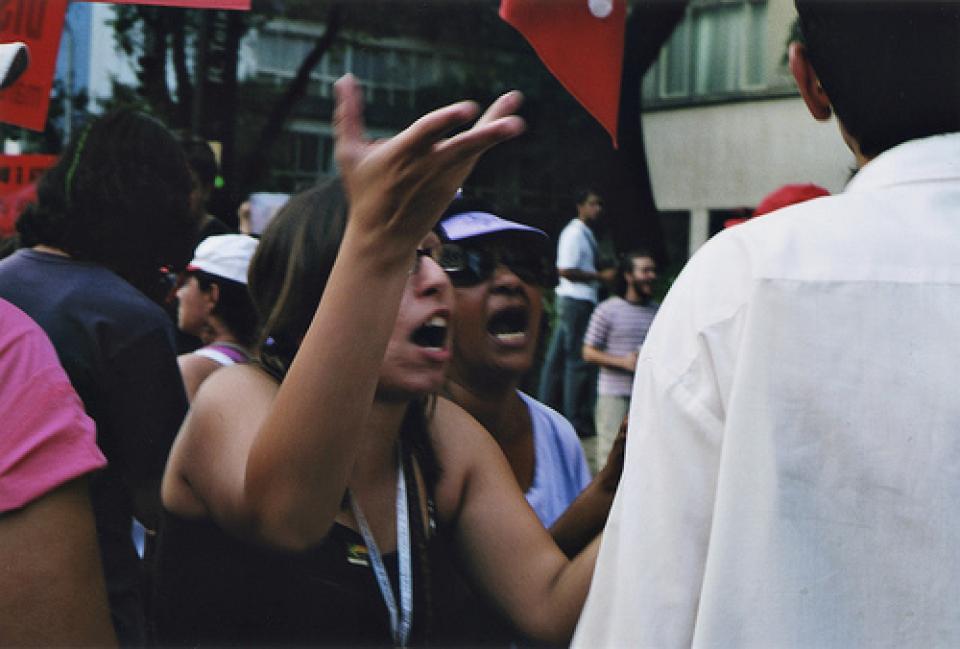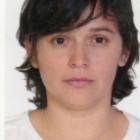
A girl growing up in the 80s in Central America, in Honduras, who went to state schools had few chances to access any type of technology. It was even difficult for us to access books as a source of knowledge, and letters were a form of communication to which only some of us had access.
All of the music - other than the music that my mother listened to - was only available in English, and we only had access to three television channels. Mass media and information were one directional, and had little to do with the life we faced day to day. Communication and information were seen as something handled only by “experts”.
But after a few years the tech boom began to arrive in Honduras, and with it came the internet. Some of us had the privilege of “learning” the basics of how computers worked. In some this inspired a fascination with the new world that was opened up, and, in others, an absolute terror of everything that had to do with machines, technology and, sometimes, with communication.
In that “revolutionary” moment those who “learned” faster and dominated the technology were men, but few of us women understood that their domination of tech was a result of the time, approval, and the resources they had for access. But when it comes to internet and technology, like our societies at large, there is no neutrality. Access - although it continues to get wider - is still determined by multiple social factors, and by gender.
This is why as women's movements and as feminists we have argued that technology has a political and social value - because its contribution to the collective construction of life can be a tool for empowerment as much as for the perpetration of inequalities in general and of gender in particular. That is why in JASS Mesoamerica we try to promote and increase the political use of information and communication technologies to facilitate connections between diverse women, amplify their voices, and affect the collective imagination.
In doing that work we discovered the Women's Networking Support Programme (WNSP) of the Association for Progressive Communications, and its wonderful way of making ICTs accessible to women and supporting ICT use in their struggles. Thanks to the APC WNSP a wide group of women's rights defenders had the chance to meet in a regional workshop in Costa Rica to talk about the meaning of the use of ICTs in our daily work, and their security implications in our context.
In the workshop we talked a good deal about our vulnerability when we are not fully aware of how technologies work, and their possible dangers. We also shared tools that enrich the different work that we do in our struggles to defend women's rights. For me, one of the most important things I learned about was digital fingerprints, and how important it is to be aware of them.
We also talked about violence against women and its connection to ICTs. That conversation was shocking, but also made us aware of alternatives and projects and initiatives that are already responding to those attacks. It is inspiring to see how web sites, communities, and diverse tools are being used to denounce violence, protect survivors, and show them options for getting away from that violence in all of its forms.
Thanks to that space we were able to update ourselves on the safe use of technologies, how to take advantage of spaces for denunciation, learn what we can do so that this does not keep happening, and, in this way, be able to stop the abuse of authority, blackmail, and control over our virtual actions that come from diverse locations.
Some say that nothing can be done, but I don't believe it. In fact plenty is already being done - but even so there is a long way to go. But we walk that road together, recognizing that it is important for us to appropriate technologies and discover how to use them to share our struggles and resistances, but without leaving aside the knowledge that only by combining them with secure alternatives can we make these spaces safe.
This edition of GenderIT.org will allow us to learn a little more about the current discussions about human rights on the internet, with a focus on the contributions made by APC, together with other civil society organizations, to the respective national reports for the Universal Periodic Review (UPR) of the Human Rights Council.
Honduras presented the human rights situation in the country through the UPR for the first time in November of 2010. To highlight only some of the explanations that the State had to provide, we pointed to the coup d'etat perpetrated in 2009, the femicides, the crimes against members of the LGBTI community, the deaths, threats, attacks and acts of harassment that human rights defenders face, and the multiple obstacles they face in their work, among other violations of their rights. This experience allowed civil society organizations to raise their voices and be fully and respectfully heard by the international community.
Is important to emphasize that Resolution 5/1 allows for an active participation by non-governmental organizations in the mechanism of the Universal Periodic Review. The UPR must “ensure the participation all relevant stakeholders, including non-governmental organizations and national human rights institutions, in accordance with General Assembly resolution 60/251 of 15 March 2006 and Economic and Social Council resolution 1996/31 of 25 July 1996, as well as any decisions that the Council may take in this regard”, paragraph 3(m).
This GenderIT.org edition is part of the 'Connect your rights!' Human rights also exist on the internet campaign, and explores how activists and civil society organizations of different countries have used this instrument as a great opportunity for raising the voices of their movements in this essential space for holding our states accountable to the international community.
It begins with an interview done by Sonia Randhawa of Jelen Paclarin of the Women's Legal Bureau (WLB), who authored their report for the UPR of the Philippines.
From Asia we go to Latin America, with interviews done by Flavia Fascendini, Spanish and Portuguese editor of GenderIT.org, of Magaly Pazello on her contribution to the UPR of Brazil and of Valeria Betancourt, director of the APC Communication and Information Policy Program, on the recommendations sent to the government of Ecuador.
I invite you all to learn about these struggles and identify the similarities and differences between your struggles and those described in this edition and to, once again, connect your rights through ICTs.
Photo by drl. Used with permission under Creative Commons licence 2.0.
Daysi Flores Hernandez grew up in Tegucigalpa, Honduras. Daysi is a civil engineer specializing in communication and social media, an environmental activist and women's human rights defender. She is the regional coordinator of communication and connections for JASS Mesoamerica.
Responses to this post
Its wonderful that you are getting ideas from this article as well as from our discussion made here.
- Add new comment
- 10657 views






Add new comment